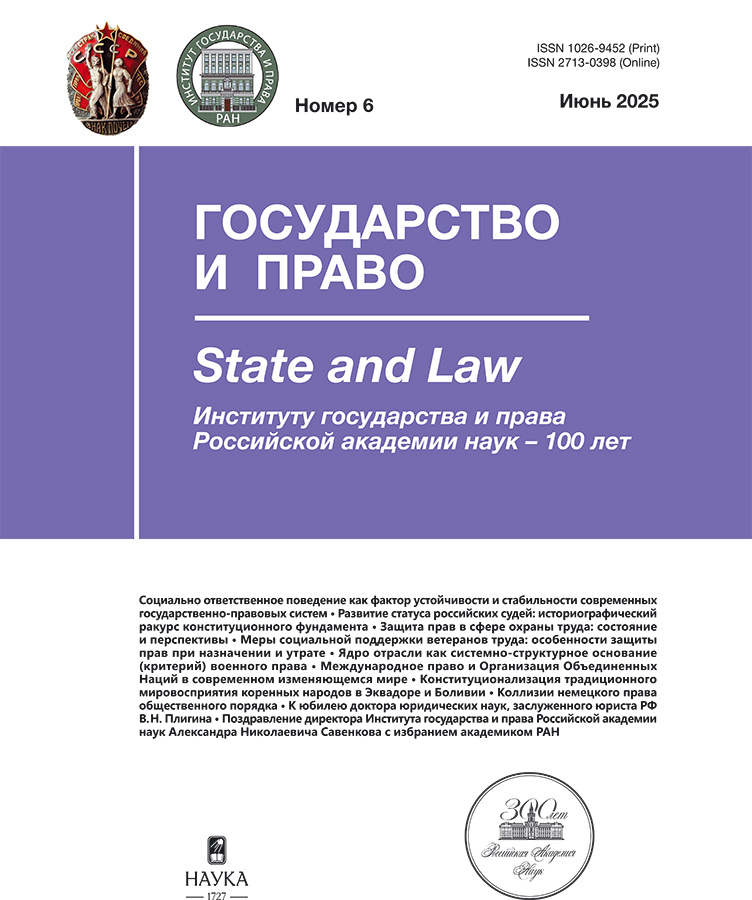Constitutional and legal grounds fiscal redistribution value added in the BRICS countries
- Authors: Bachurin D.G.1
-
Affiliations:
- Tyumen State University
- Issue: No 6 (2025)
- Pages: 181-190
- Section: Abroad
- URL: https://freezetech.ru/1026-9452/article/view/687417
- DOI: https://doi.org/10.31857/S1026945225060178
- ID: 687417
Cite item
Abstract
The article is devoted to the formation of an effective system of tax and budgetary allocation of VAT, taking into account constitutional provisions that are fundamentally important for this area of relations. As a result of the study of this phenomenon using the example of the largest BRICS countries – China, India, Brazil – possible ways of interaction between the fiscal interests of the state center and the regions have been identified. Their generalization allows us to identify two extreme options: (1) complete regional centralization, in which the main tax and budget decisions are made by the central government; (2) partial regional decentralization, when it is possible to divide tax powers, provide independence in expenses, and create bodies for coordinating legal regulation between the center and the regions. It is concluded that the experience of organizing the fiscal distribution of VAT receipts in the BRICS countries can be productively applied to further improve such distribution as the most important financial and legal regulator of socio-economic development.
Full Text
About the authors
Dmitry G. Bachurin
Tyumen State University
Author for correspondence.
Email: 22424tu@mail.ru
Doctor of Law, Leading Researcher at the Center for Innovative Design and Applied Research
Russian Federation, 7a, Krasin St., Tyumen, 625003References
- Zorkin V. D. The Constitutional Court of Russia: doctrine and practice. M., 2019. P. 125 (in Russ.).
- Lewis E. Without regard to the gods. The Rise of modern India. M., 2009 (in Russ.).
- Chirkin V. E. Constitution and modern models of public power: ideologemes and realities // State and Law. 2011. No. 6. Pp. 5–12 (in Russ.).
- Erbolato H. Brazilian Tax Reform – Framework and What to Expect // International Forum Bloombergtax. 2020. Jan. 22. URL: https://news.bloombergtax.com/daily-tax-report-international/brazilian-tax-reform-framework-and-what-to-expect
- Gao P., Ma Ju. China: Toward the New Stage of Improving Its Tax System // Journal of Tax Reform. 2015. Vol. 1. No. 2–3. Pp. 145–160.
- Giglio G., Natale M. The long expected Brazilian tax reform – objectives, challenges and pitfalls // Euromoney Institutional Investor. 2020. URL: https://www.internationaltaxreview.com/article/b1ky5my4sl0zqx/the-long-expected-brazilian-tax-reform-objectives-challenges-and-pitfalls
- Subrata K. M. Politics in India. Structure, Process and Policy. New Delhi, 2014. P. 121.
- Tavares R. J. S. Foreword: Assessing Brazil’s tax landscape in 2020 // Euromoney Institutional Investor. 2020. URL: https://www.internationaltaxreview.com/article/b1ky4qkvpyc4pd/ foreword-assessing-brazils-tax-landscape-in-2020
Supplementary files










